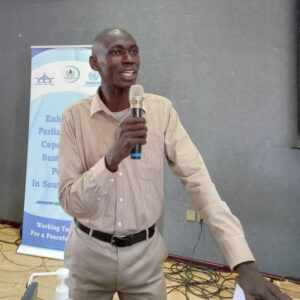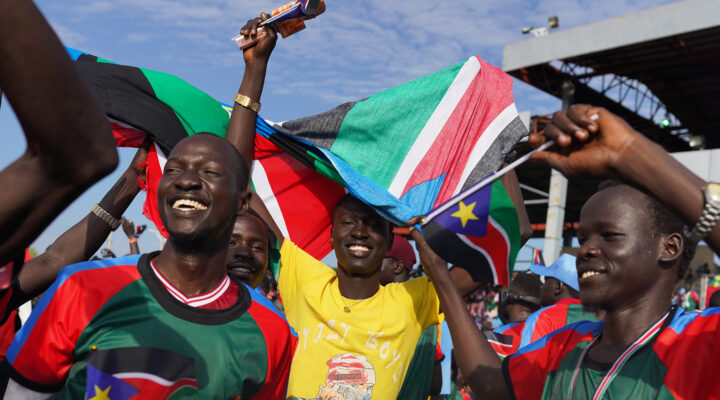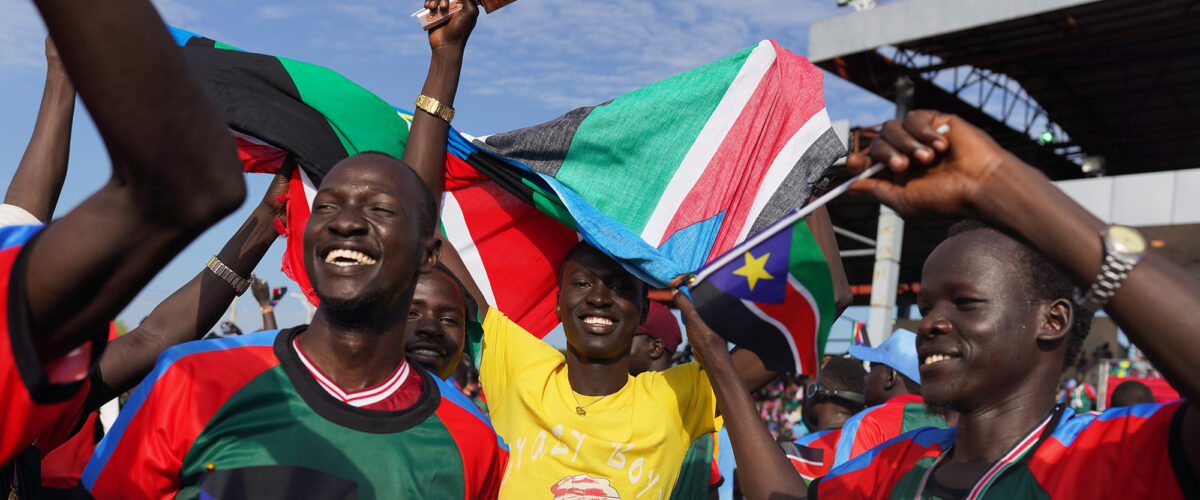In the 11-year history of South Sudan as an independent country, the East African nation has known more conflict than peace among its disparate tribes.
The conflicts, which began in 2013 as a political dispute between the country’s leading politicians — President Salva Kiir Mayardit and his deputy, Riek Machar — soon snowballed into inter-ethnic animosity, leading to huge loss of lives and property after soldiers from Dinka and Nuer ethnic groups took sides and clashed. This lead to violence that soon spread like wildfire around the country.
A report by Human Rights Watch states that the United Nations Mission in South Sudan in 2021 “documented hundreds of cases of civilian killings and injuries, the majority by community based ‘civil defense groups.’ UNMISS also documented cases of arbitrary killings, abductions, conflict-related sexual violence, arbitrary arrests and detention, torture and ill-treatment, forced military recruitment and the looting and destruction of civilian property by civil defense groups, government forces, and rebel forces.”
The United Nations Mission in South Sudan in 2021 “documented hundreds of cases of civilian killings and injuries, the majority by community based ‘civil defense groups.’”
The report adds that “in June, the U.N. reported that more than 80% of civilian casualties in the country were attributed to intercommunal violence and community-based militias. Intercommunal fighting, cattle raiding and revenge attacks between armed youth groups … resulted in hundreds of deaths and injuries, displaced hundreds of thousands, and led to the suspension of humanitarian services in some areas.”
Even when peace efforts were initiated during the crisis by concerned individuals or groups and agreements signed by the warring factions, they were mostly sabotaged by the same people who stoked the conflict.
Amid this backdrop, the South Sudan Council of Churches recently recommitted itself to finding lasting peace in the country. At a three-day event held April 26 -29, in Lukenya, Kenya, church leaders pledged to continue working for peace in the country through a framework they unveiled seven years ago in Kigali, Rwanda, called the Action Plan for Peace.
Called APP for short, the plan’s objectives include deploying the church’s experts to analyze and address issues while pinpointing critical areas of intervention in the short and long term, ultimately paving the way for forgiveness, justice, reconciliation and healing in the troubled land.
The statement of reaffirmation was signed by Stephen Ameyu Martin Mulla, Catholic metropolitan archbishop of Juba; Justin Badi Arama, archbishop of the Episcopal Church of South Sudan; Isaiah Majok Dau, general overseer of the Sudan Pentecostal Church; James Lagos Alexander, presiding bishop of Africa Inland Church; Thomas Tut Puot Mut, moderator of the South Sudan Presbyterian Evangelical Church; and James Oyet Latansio, general secretary of the South Sudan Council of Churches.
“We recognize that peace and justice will not come about through technical and political mechanisms alone, but through transformation of the hearts of all our leaders and our people,” the church leaders declared. “We will deepen our efforts for spiritual renewal in our nation and our people.”
“Our first aim was ‘stop the war now!’ and we thank God that the nationwide war has indeed ceased.”
They further stressed the need “for a new culture and lifestyle of nonviolence throughout our society, in our government, in our political and military factions, in our communities, in our homes and in our hearts.”
Given all that has happened in South Sudan over the past nine years, the church leaders admit that “positive changes” have taken place in the country since 2015 and thanked all those who had helped make this happen. But they noted more work needs to be done to sustain the effort.
“Our first aim was ‘stop the war now!’ and we thank God that the nationwide war has indeed ceased. However, it has been replaced by widespread violence across the nation; we are still killing ourselves, and our people are suffering. We also thank God that a peace agreement and a transitional government are now in place, and we congratulate the parties on the clauses which have been implemented,” they said. “But we note with sadness the slow implementation of some clauses to which the parties have agreed, the apparent lack of political will amongst many of the signatories, and the failure to address the root causes of the conflict. We regret that a number of armed parties have felt unable to sign the (agreement) and we support the efforts of the Community of Sant’Egidio and others to achieve a more inclusive agreement.”
The church leaders call comes three months before Pope Francis’ visit to South Sudan in July, a visit many within and outside the church and country hope will further draw attention to and deepen the peace process. Before now, Pope Francis is known to have shown uncommon commitment toward peace in South Sudan when, in what could be seen as beyond the norm, he knelt and kissed the feet of Mayardit and Machar while urging them to embrace peace during their visit to the Vatican in 2019.

Edmund Yakani
Analyzing the current situation in South Sudan, Edmund Yakani, executive director of Community Empowerment for Progress Organization, told BNG the horizon doesn’t hold much prospect for peace as long as the peace agreement is being breached.
“The situation in terms of peace and stability is not promising, especially if we talk of individual and community safety and security,” he said. “The incidences of deadly inter-communal violence increased sharply. In the signed peace agreement implementation, it is only provisions on power sharing (that are) implemented but provisions on transitional security arrangements are yet to be implement[ed].”
He blames the setback on politicians who choose to protect their narrow interests at the people’s expense.
“The lack of trust and confidence among the political leaders is very high and this [accounts for why they] prefer resolving their political grievance through guns than dialogue. The current situation at any[time] can break into violence since the armed forces of the peace agreement have not unified the forces. … South Sudan is a country facing hardship on successful political transition from violence to peace due to deficit in trust and confidence among the various political elites.”
It hasn’t always been like this, as the various tribes in the country once posed a united front, a fact seen in their quest for political independence from Sudan, a country they belonged to until July 9, 2011. At that time, 98.83% of the population voted in favor of independence from Sudan. It was the crescendo to a long and bloody struggle to secede from a country where they felt politically and economically marginalized. The agitation and resultant civil war by people of what is now South Sudan to secede from Sudan began in 1955 and lasted until 1972. Another attempt at secession kicked off in 1983 and ended in 2005.
A December 1998 report by the U.N. estimated at least 1.9 million people from both sides died during a 15-year period of the second civil war alone.
Comparatively, about 400,000 people, according to a Council on Foreign Relations report, died within the five years since 2013, when war broke out in the world’s youngest nation.
South Sudan, a country of more than 11 million people, also has a significant refugee and diaspora population within and beyond Africa.
Anthony Akaeze is a Nigerian-born freelance journalist who currently lives in Houston. He covers Africa for BNG.
Related articles:
Another year, more conflict in Africa; where’s the off ramp?


